If you’re often or constantly afraid of what other people think of you, it may be difficult to live your life the way that you want. For example, you may be anxious about trying a new hobby in case other people think you look foolish. Or you might not ask someone on a date because you have an extreme fear of rejection.
In this article, you’ll learn how to care less about what other people think of you.
Sections
How to not care what people think
It’s difficult to relax, build genuine relationships, and be yourself if you’re overly focused on creating a good impression or pleasing others. These tips and exercises can help you shift your mindset and stop caring so much about what everyone else thinks about you.
1. Live by your personal values
Other peoples’ opinions and judgments may not matter so much when you have your values to guide you. Values can serve as an inner compass when you aren’t sure how to act.
For example, let’s say you value loyalty and kindness and do your best to live by these values. One day, you’re chatting with a group of friends. Someone starts making unkind remarks about another person who isn’t in the room. You want to speak up and ask your friend to stop spreading nasty gossip, but you’re afraid that everyone else will think you are too uptight.
In this situation, the easiest thing to do is nothing. But as someone who values loyalty and kindness, you realize that if you want to stay true to your values, you need to step in and try to shut down the gossip. Your commitment to your values may give you the confidence you need to stop caring so much about what everyone else is thinking.
If you aren’t sure of your own values, it may help to ask yourself the following questions:
- Do you have a role model? If so, what do you admire most about them? What are their values?
- What charitable or political causes do you support, and why?
- If you identify as a religious or spiritual person, does your belief system emphasize any specific values?
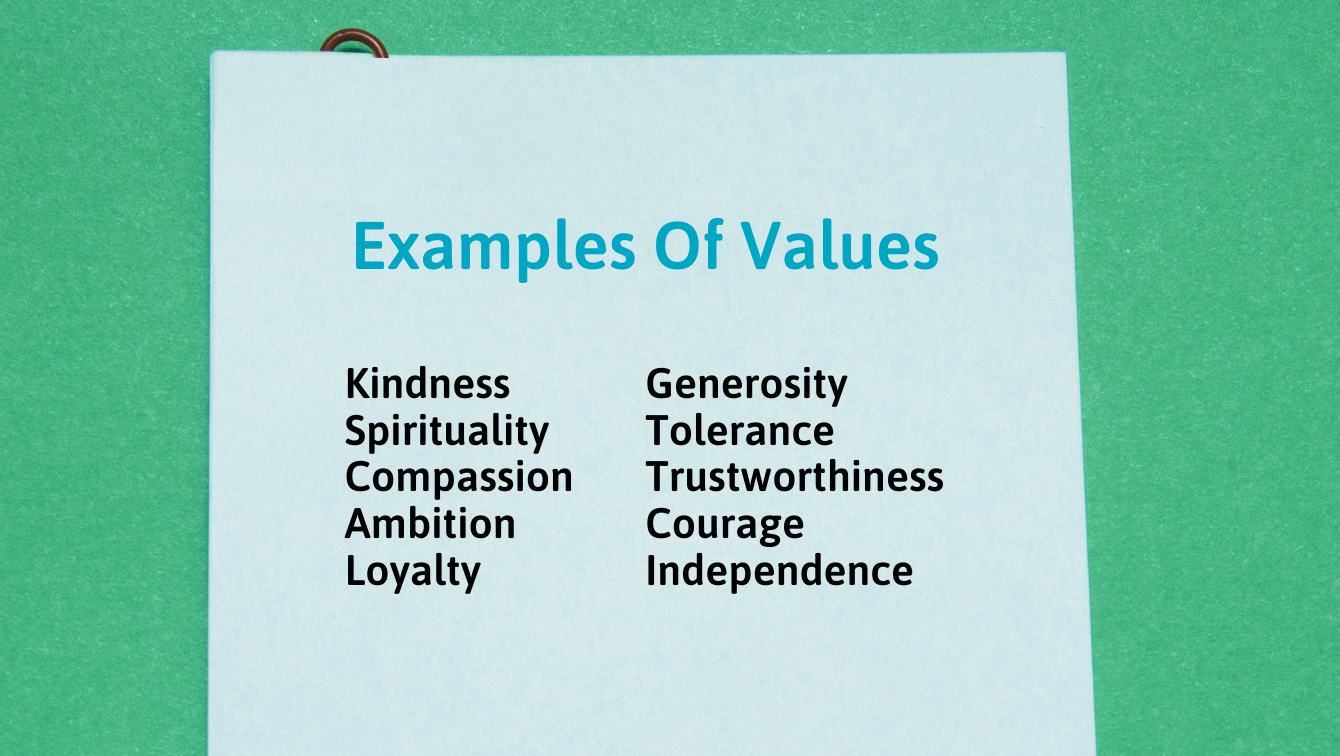
2. Pursue goals that matter to you
When your goals are meaningful to you, it may be easier to stop caring about what other people think of your choices, priorities, and lifestyle.
For example, you may decide that your top priority in life is to raise a family as a stay-at-home parent. Someone who wants to make their career a priority and earn lots of money might not understand your decision. They may judge you for being (in their eyes) unambitious. But if your goals are in alignment with your values, it may be easier to ignore their opinions.
3. Remind yourself that others don’t care what you do
It’s true that some people will judge or criticize you. But, as a general rule, others are not thinking about you very much. Remembering this fact can help you feel less self-conscious. Studies have shown that we overestimate how much other people care about our mistakes.[1]
It may help to try thinking about the last time you saw someone make a mistake or slip up in front of other people. This can help you realize that most of us don’t care what everyone else is doing unless their actions affect us in some significant way.
For example, perhaps you saw someone drop a bag of groceries or heard them mispronounce a word. Did you judge the other person harshly? Will you remember their mistake a few days or weeks from now? Probably not! Try to remember that people around you are unlikely to spend much time thinking about you or your mistakes.
4. Remember that judgments aren’t always personal
If you are worried that someone else is thinking or saying unkind things about you, it may help to realize that everyone views the world (and the other people in it) through their own lens.
Judgments can come from a place of insecurity and can reveal more about the person who is making the judgment than the person on the receiving end.
Research has shown that people tend to be critical of other lifestyles if they feel unhappy or insecure with their own life choices.
For example, according to one study, people tend to hold their own relationship status up as the ideal, especially if they think it isn’t going to change in the foreseeable future.[2] So someone who feels trapped in an unhappy marriage may claim that being married is in some way better than being single, even if it’s clear they are unhappy in their relationship.
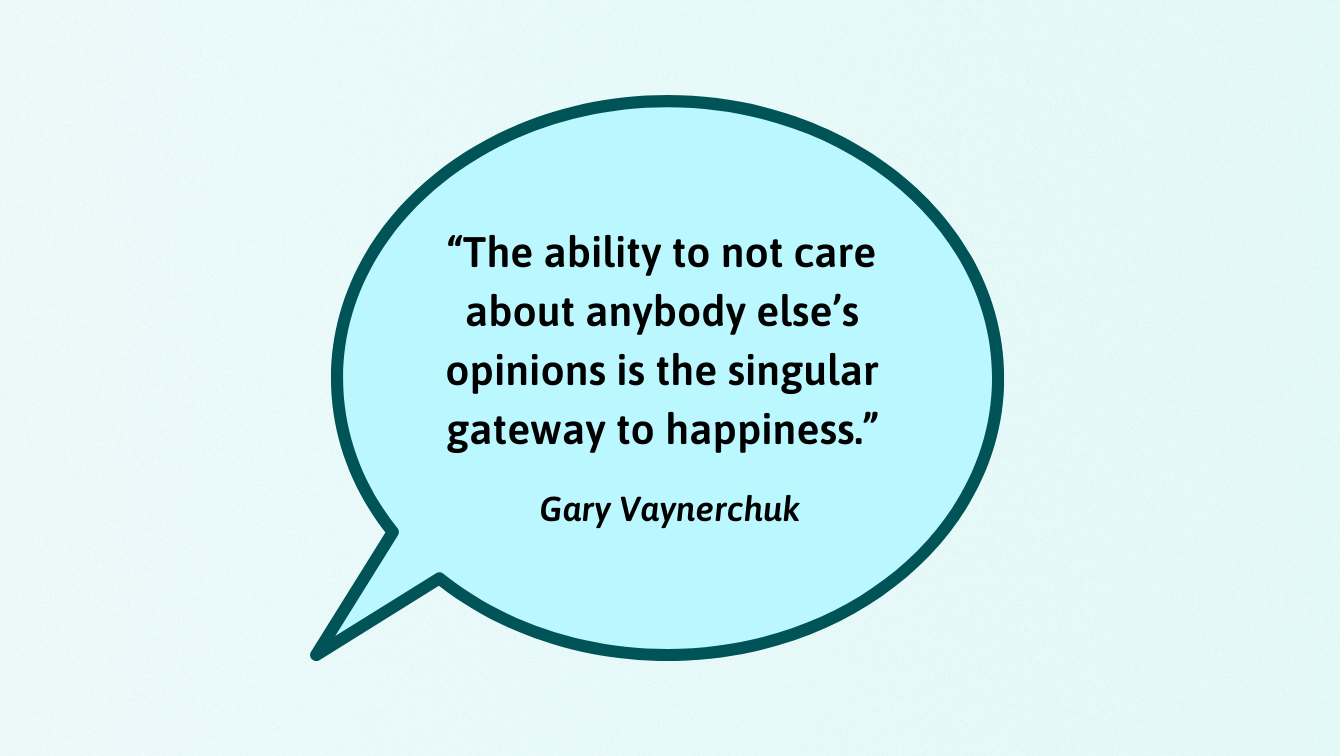
5. Challenge your negative thoughts
Remember that you don’t have to accept every thought you have about yourself. Try to challenge your negative thinking; it may help you feel less self-conscious.
For example, let’s say you’re in a meeting at work. You’re surrounded by people who you think come across as more confident and capable than you. You start thinking, “I bet everyone else thinks I don’t belong here. They probably don’t like me.”
When you have a thought like this, it can help to ask yourself these questions:
- Do I have good evidence that this thought is really true?
- Can I think of a more optimistic (yet still realistic) way to view this situation?
In the example above, you could try telling yourself, “I can’t see inside everyone’s heads, so I can’t possibly know what they think of me. I don’t have any solid evidence that this thought is true. In fact, they’re probably busy thinking about lots of other things. The reality is that I feel insecure right now, but that doesn’t mean I shouldn’t be here, and it doesn’t mean other people think I’m incompetent.”
6. Prepare responses for worst-case scenarios
You may be less afraid of other people’s opinions if you’re ready to deal with their judgment. If you are worried about a specific scenario, it can help to mentally prepare for how you might deal with an awkward situation.
For example, let’s say you’re going to a party and you’re trying to decide what to wear. You recently bought a new shirt that you like, but it’s not your usual style. You’re worried that other people at the party will think that it looks bad.
In this kind of scenario, it may help to ask yourself these questions:
- What’s the worst that could happen?
- If my fear came true, how would I handle it?
- If my fear came true, would it affect me weeks or months later?
In this case, the realistic worst-case scenario might be that someone stares and laughs at your shirt before making an unkind comment.
Although you’d probably feel awkward and embarrassed, there are several ways you could handle the situation. If you didn’t feel able to say anything, you could simply walk away. Or, if you were feeling more assertive, you could say, “That’s a rude and completely unnecessary thing to say.”
“The ability to not care about anybody else’s opinions is the singular gateway to happiness.” – Gary Vaynerchuk
7. Try to stop judging other people
When you deliberately shut down your judgmental thoughts, it can be easier to believe that other people are giving you the benefit of the doubt too.
The next time you start judging someone harshly, try to pause and replace your criticism with a neutral or positive thought. For example, let’s say your colleague is wearing a very unflattering outfit. You catch yourself thinking, “Wow, that really doesn’t work for their body shape!”
You could replace that thought with something kinder and more positive, such as, “It’s good that they feel confident enough to wear clothes they like, even if their tastes are unusual.”
8. Learn how to cope with criticism
If you care deeply about what other people think of you, constructive criticism can feel like a major threat. But criticism may not feel so frightening if you know how to handle it. Here are a few ways to deal with criticism:
- Acknowledge your mistakes without getting defensive (e.g., “You’re right, I completely forgot to double-check the brochure layout. It was a careless oversight.”)
- Ask your critic for suggestions and advice (e.g., “I agree that I need to come across as more confident when I give presentations. Do you have any advice on how I could improve?”)
- Ask for specific examples if the criticism is vague (e.g., “I’m not sure what you meant when you told me that I should have played to my strengths on the last project. Could you give a specific example of what that would have looked like?”)
- Try to think about what you can do to improve instead of dwelling on your mistakes. It may help to make a list of things you could change. Ask a trusted friend, colleague, or mentor to help if you feel overwhelmed or aren’t sure where to focus your efforts.
- Remember that you’ve survived criticism and negative judgment on previous occasions. You’ve already proven to yourself that you can cope with it, even if it hurt at the time.
For more tips, check out the Centre for Clinical Interventions’ guide to dealing with criticism.
9. Focus on your best qualities and achievements
When you learn to like yourself, it may be easier not to care so much about what other people think of you. It can help to focus on your best traits and achievements.
Try making a list of your proudest moments and greatest accomplishments. You could also look for opportunities to use your skills in positive ways. For example, if you are a compassionate person with strong listening skills, you could sign up as a helpline volunteer.
Give yourself praise or a small reward when you finish up an important job or difficult task. Don’t rely on other people for encouragement.
10. Practice self-acceptance
If you can validate and accept yourself, you may not care so much about what other people think of you. Self-acceptance allows you to realize that you’re a worthy person, whether or not someone likes you.
Here are some ways you can develop self-acceptance:
- Grow your self-awareness: Self-aware people know and accept their strengths and weaknesses. You could start by keeping a journal, taking reputable personality tests, or evaluating your beliefs and opinions. See our guide on how to be self-aware for more ideas.
- Practice letting go of your mistakes: Self-acceptance means accepting what you’ve done in the past, including embarrassing moments and mistakes. Our guide to letting go of past mistakes may help you.
- Try to stop comparing yourself to other people: Comparisons are often destructive and probably make you feel worse about yourself. Our article on how to stop feeling inferior to others has some tips to help you stop comparing.
- Work on your body image: If you aren’t happy with your appearance, you may spend a lot of time worrying about what other people think of your looks. It might help to work on your body image. Our guide to body neutrality has some advice on how to make peace with your appearance.
11. Surround yourself with supportive people
When you feel accepted by people you like and respect, you may not care so much about what everyone else thinks. Invest your time and energy into meeting and befriending people who appreciate you.
You can build more supportive, healthier relationships by:
- Meeting likeminded people who share your values
- Learning the most common signs that a friend doesn’t respect you so you know when it’s time to stop investing in people who don’t have your best interests at heart
- Learning how to set boundaries in your relationships and making it clear that you won’t tolerate poor treatment from others
If you know or suspect that someone doesn’t like you, don’t make the mistake of assuming that you need to change their mind. You cannot appeal to everyone because we all have different tastes in friends and partners. If you try to be universally popular, you’ll only waste time and energy.
12. Learn how to make better decisions
When you are confident in your decision-making skills, you may find it easier to make choices without worrying about what everyone else thinks of you. No one makes great decisions all of the time, but it’s possible to learn the art of making better choices through deliberate practice.
There are many decision-making models you can use when you’re in a tricky situation and aren’t sure of your next steps. For example, MindTools’ 7-step process sets out how to weigh up various options and make sensible choices.
13. Consider getting professional help
If you find it very difficult to stop caring too much about what other people think, it may be a good idea to seek professional help. A therapist can help you improve your self-image, challenge the negative thoughts you have about yourself, and learn to value yourself regardless of what anyone else thinks of you.
Working with a therapist may be especially useful if you have (or believe you may have) an underlying mental health problem, such as social anxiety disorder (SAD), that makes you unusually self-conscious.
We recommend BetterHelp for online therapy, since they offer unlimited messaging and a weekly session, and are cheaper than going to a therapist's office.
Their plans start at $64 per week. If you use this link, you get 20% off your first month at BetterHelp + a $50 coupon valid for any SocialSelf course: Click here to learn more about BetterHelp.
(To receive your $50 SocialSelf coupon, sign up with our link. Then, email BetterHelp’s order confirmation to us to receive your personal code. You can use this code for any of our courses.)
Common questions
What are the benefits of not caring about what other people think?
When you no longer care too much about what people think of you, it may be easier to feel confident and relaxed in social situations. You might also feel more secure when making decisions if you aren’t worried about what people will say about your choices.
Should you care about what people think of you?
In some cases, it’s a good idea to care about what people think of you. For example, if your partner is upset by your behavior, you should care what they think if you want to improve your relationship. But in general, it’s best to look to yourself, not others, for acceptance and approval.
Do you care less about what people think as you get older?
Research shows that self-esteem increases with age, peaking around the age of 60.[3] These findings may mean that when we get older, we value and accept ourselves more. As a result, we may care less about what others think.
Why am I so concerned about what others think of me?
We have evolved to seek out approval because it gives us a sense of belonging and safety. Early humans were more likely to survive if they were part of a group, so it made sense for them to worry about being excluded or shunned.[1][4]
What is the fear of what others think of you called?
Someone who fears the opinions of other people has allodoxaphobia. “Allo” comes from the Greek word for “other.” “Doxa” comes from the Greek word for “belief” or “opinion.”
References
- Savitsky, K., Epley, N., & Gilovich, T. (2001). Do others judge us as harshly as we think? Overestimating the impact of our failures, shortcomings, and mishaps. Journal of Personality and Social Psychology, 81(1), 44–56. https://doi.org/10.1037/0022-3514.81.1.44
- Laurin, K., Kille, D. R., & Eibach, R. P. (2013). “The Way I Am Is the Way You Ought to Be.” Psychological Science, 24(8), 1523–1532. https://doi.org/10.1177/0956797612475095
- Orth, U., Erol, R. Y., & Luciano, E. C. (2018). Development of self-esteem from age 4 to 94 years: A meta-analysis of longitudinal studies. Psychological Bulletin, 144(10), 1045–1080. https://doi.org/10.1037/bul0000161
- Leary, M. R., & Cox, C. B. (2008). Belongingness motivation: A mainspring of social action. In J. Y. Shah & W. L. Gardner (Eds.), Handbook of motivation science (pp. 27–40). The Guilford Press.
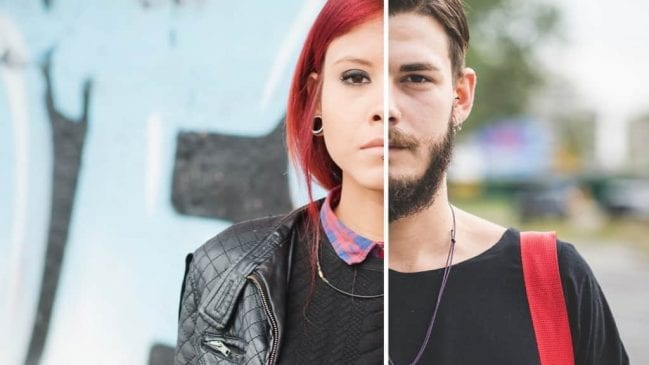




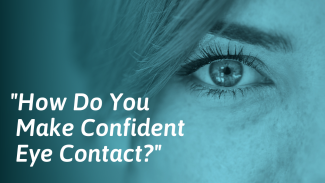
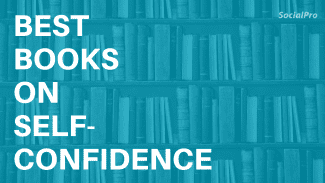

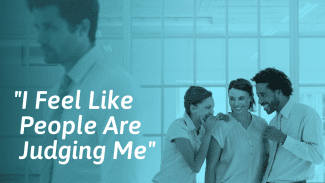
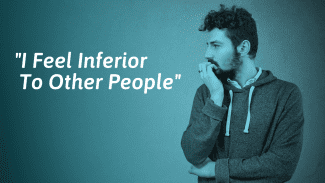
Being judged by others
Buddy, I feared that too. I fear that still. But I have minimised the scope of fear by choosing to care about being judged only by people who matter.
Me XD
I am insecure about my height with the fact that I am only a 5 3 make. In addition, I am insecure of never having even been on a date with a girl in my life as I am a 30 yr old male.
I like short guys …. 🙂
I realised recently that being unashamed of my social inexperience, treating anxiety-causing situations as an opportunity to learn something, and being myself is what I should do for my self-esteem. However, I’m anxious about losing friends and making new enemies because of this (I’m still in high school), and I don’t know if I have the capacity to brush them off so easily. I have an unusual physique as well (leaner, toned upper body but with gynecomastia and large, disproportionate legs and thighs), which I’m working on, but at the moment I’m worried it’ll help me become more of a target.
I am affraid that people (particularly girls) will find out that I haven’t had sex/any intimate interaction with a girl in over two years. I am affraid they will laugh, I will become the subject of jokes, and all of this will lead to me being even less desirable, because I will seem unwanted and unconfident.
Well to tell the truth I like guys who are less physical and more real, and ones that are willing to wait for the perfect girl
A fear of talking to people 1 on 1 who I don’t kno well
I have this fear too. Something that helps inspire me and worry less is to think about how everyone you ever knew and are close with (including your family) at one time, didn’t know you well. It is typically through gradual interactions and conversation that strangers become our close friends. That being said starting light is definitely good! Small talk about the weather, or a comment about something going on in he environment your in with them is a good way to start. Then you can try to use those “micro conversations” to try and open up to more interesting dialogue and find similarities that you both have. One way to make a person like you/like talking to you is to make them feel important (not in a groveling way, but just that you are genuinely interested in them). One way to make this happen is to ask open ended questions to them. I.e. you are waiting for the bus and you ask a stranger if they know when the next bus is coming. They tell you, and you can make some comment like “it’s nice that buses come so frequently in this city” (or critique the bus time). They might only give you a simple nod or one word answer, but that progresses the dialogue to a point where you can ask something like “are you from this city?”. They might be taken back for the first second or two, because we are so used to not talking to strangers in our society, but they will likely respond, and be glad you asked! People like to talk about themselves and they like to feel important. You can easily follow up their answers with more open ended ones like “what’s it like being from?” Or “what made you move?”
I have a fear of talking to people 1 on 1 as I feel like I’m constantly being judged by them. I wish I could act the same way I would if I was at home or by myself to show them I’m a very enthusiastic and funny person.
One of the biggest fears I’ve had in recent years is that if I were to start dating, my partner could, at some point, start cheating on me for many possible reasons (sometimes, I feel like a person who could easily get cheated on in a relationship). It could be that I’m not “attractive enough” for them to want to stick with me in a romantic way, possibly because they’re spoiled, or just careless about how their actions affect others. This has often led me to take extreme caution when deciding to go into a romantic relationship with someone, considering the red flags that could indicate an abusive relationahip. Another possible reason is that I’m not really giving them the attention or affection that they desire in a romantic partner; this might be because I’m asocial or don’t really have much of an interest in romance (which isn’t really the case anymore, since I feel a lot more social now that my mood has imoroved). Because of this fear, I’ve been feeling very proactive about improving my appearance, so that people feel more comfortable around me. That’s why I’ve sought the help of a wardrobe consultant, for example. Deep down inside, I want to look good and develop better hygiene, and it doesn’t hurt to up one’s appearance, as long it’s safe, right?
Hi Jacob, I think it’s great that you are taking more care of your appearance. It reflects that you are also taking more care of yourself on an inner level.
I feel insecure whenever I am in public and someone looks at me. I feel like I have to keep a straight face and look cool instead of being myself.
I’m the most insecure in socializing. I tend to like my space, but sometimes, if I want to hangout with my friends, I freeze up in how I should ask them. I’m about to start my Junior Year in College and I would like to increase my social being where I can easily talk to people and get comfortable around others instead of making small talk all the time. I tend to not open up to the opposite sex because I don’t want to be needy or lose my independence even though they told me plenty of times, that they like hearing from me. Overall, I think I’m the most insecure when I overthink what would be others’ reactions if I express my feelings towards them which is hard and I don’t wanna be a burden and get hurt by people who don’t care.
You are so strong for sharing. I admire that kind of self-awareness you seem to have. With that awareness, how do you feel about gradually challenging your fears? Maybe try giving a friend a genuine compliment, or opening up about something small to them.
I feel really insecure about being perceived as boring and/or stupid, especially when socializing with my similarly aged peers. I feel like I have nothing original to contribute, only some rehashed and possibly incorrectly understood thoughts of other people that I’ve come across online or in books.
It’s made a lot worse because of my ocd, which sometimes makes it almost impossible to stay in the moment and instead forces me to ruminate and worry about the past or the future. As a result I’m engaging in a lot of avoidance behaviours and can stress about future interactions already days before.
I actually think you sound like a very interesting person to have a discussion with. Nobody’s thoughts are fully original, being aware of our own biases like you are can make for very interesting conversations.
same actually, but what i have learnt is that you have to stop thinking that “oh im so boring” “i have nothing to say” . actually, what makes people interested in you is when you listen to others first and when others feel that you are a good listener. no one likes a chatter box, and this could be good if you’re shy in sharing abt yourself ! when you listen to others, you will know what they are interested in and it will be easier for you to find common topics with them! good luck!
I feel really insecure about being perceived as boring or stupid, especially when communicating with my similarly aged peers. Often I feel like I have no personality and nothing original to share and am only re-distributing some elses thoughts. Mainly what I’ve read online or in books. This is probably partly due to the fact that I don’t end up doing much of anything interesting because of the anxieties related to socializing.
Often this insecurity leads to overcompenstation where I try too hard (to be interesting) and I feel like a fraud afterwards.
I feel really insecure and stressed about what to study.. I’m 21 and have been going on and off programmes now for three years and am really indecisive.. and now I’m way more stressed and insecure because many of my friends are just about to graduate. So when I start studying they will be way into their careers.
I initially wanted to do graphic design and commercial film but have a feeling like I could do something more intelligent.. I’m interested in psychology but feel like it wouldn’t be creative enough.. I want to be successful and unique so badly but I just see everyone running past me because I can’t make my mind up. So you hear, full of comparing myself and fear of failure. It stresses me out and have a hard time knowing how to deal with it. Any tips?
I started college when I was 18, but I regret I didn’t wait longer to decide. If I had some more perspective and real-life experience first, I know I would have been more motivated and successful in the end. So I would say it might not be such a big rush as you think. Even if it depends on your life circumstances.
I’m afraid of rejection, so much so that it prevents me from taking action. I’m afraid of being alone and will often tolerate inexcusable behaviour to avoid the possibility of people not wanting to be around me 🙁
I’m scared of being left alone, I feel if I’ll let everyone know me completely they will go away because I’m boring.
Hi it is weird though that I’m afraid of my daughter. Its not her fault it’s me. Because I don’t know what to talk much. I’m a housewife. I don’t go out and mix with people much. I’m not that intelligent or clever and confident kind. Whenever she wants to talk i just lost my tongue and she gets upset. She is a nice and intelligent person. Its me I’m worried about. Please help me. What should I do about it?
Hi,
I had to comment on this because I’ve had a similar relationship to my dad. But first of all, as you may be aware of, I think you have a misconception about yourself 🙂 1. A person who’s actually able to admit to their insecurities and reflect on who they are, are intelligent people and usually kind. 2. The fact that your daughter have those traits you mention must mean she learnt them from the people who raised her, and I assume you were one of them.
If I were you I would probably try to let her know how you feel and want to better the situation. Perhaps you can ask her if she wants to do something with you one day, something you both would enjoy. Maybe you don’t have to do all the talking but you can be a good listener, everyone would like to have someone like that! I think it’s good to see the best in your children, but don’t idealise them. Practice seeing yourself as equal to them. The relationship with your children are one of the most important ones so take care of it by taking care of how you think about yourself in a mature way, I believe you can do it! Kind regards Olivia
I am afraid of passing by and chatting with groups or trying to join conversations. I just get quiet and they look at me and each other, probably wondering what to do
I too fear that, I want to talk to people but it’s just difficult to approach them
Things I am afraid or insecure about:
– At school, I have a few friends in every class but I’m not part of a ‘cool’ group. So, I don’t get invited to things like parties. So I’m afraid that people might think I’m not cool and a loser.
– When talking with people I’m not close to yet, I’m insecure that I might be too boring
– Especially in group conversations, I’m worried that what I have to say isn’t good or ‘cool’ enough
– People talking crap about me
Whenever I say something and my friend doesn’t react much I worry that they find me boring and awkward to be with. I also feel insecure about my friends and whether they will leave me most of the time.
I’m insecure about being into personal development and healthy living as I’m afraid my partner (and others) will judge the things that I read and do (for example, using affirmations). I constantly feel the need to hide this interest from him.
I’m insecure about not sounding smart enough sometimes I forget the words I want to say because of my anxiety and overthinking. I feel like I loose track of what I was going to say and sometimes find myself cutting it short because I get so nervous
I just want to give everyone who feels like that a hug. Thank you for sharing <3
Have you tried practicing the OFC-method to help with your anxiety? https://socialself.com/is-it-possible-to-double-your-confidence-in-5-minutes/
Hey,
I have a lot of fears but one of the biggest is when I have lunch at work with other colleagues and someone asks me a question or when I want to say something that will get people to look at me. In these kind of situations I instantly start blushing and since I’m aware of that it even gets worse.
Thank you for sharing!
A little tip, try to just roll with it, it’s OK to blush. Most people actually think it’s kind of cute. When you let go of trying to control it or hide it, it will also stop being such a big issue. Hope that helps!
I’m insecure about my insecurity (weird). The biggest part of my anxiety is that I’m self-conscious of people seeing how anxious I am. How much of a “weak loser” I am, how scared and desperate I am for them to like me and how I absolutely know that they don’t or won’t. My self-image is low and I know other people know that my self-image is low, so then the downward spiraling feedback loop begins. I see myself acting as if I WAS inferior and unlikable and hated almost compulsively which of-course puts people off. I end up getting really paranoid about this. I see it as if it’s a Gollum-like self that I can’t help but turn into when I’m around other people, made up of how I see myself and how I think others see me. I might be insane! And I’m insecure about that.
You are so brave for sharing and looking at your own insecurities AN. I think you’d be surprised at how many people are insecure about their insecurity, I think that’s probably one of the most “normal” and common insecurities out there. It’s good that you already have so much self-insight on your destructive behaviors, that helps a lot in trying to improve them.
Wow this is good. I remember reading somewhere, feature your insecurities until they become your strengths. So you don’t let them rule you anymore.
Alright, but let me join the fray as well.
I am insecure about failing to live up to my potential. That I will try to little to be good in life. Maybe I should forgive myself more for necessarily achieving arbitrary images of perfection.
Thank you Timon and thanks for opening up!
I think your plan on being more forgiving and compassionate towards yourself sounds AWESOME. Self-compassion and acceptance are probably two of the most powerful concepts out there to start living life more fully, in my opinion.
I’m afraid of letting loose and dancing in social/club/party type events with people that I know. It feels really awkward to me and I stand there as if I’m the only one noticing how strange everyone looks. I think this still happens even when I like the music that is playing. In the end, I don’t have as much fun as other people do and that bothers me. I’m also very afraid of karaoke. I wonder how people are able to sing badly in front of their friends without caring and still have a grand old time.
Hey Anon, brave of you to open up about your fears! I can definitely see what you’re saying, I felt just the same dancing at clubs when I was younger. But then over time I got used to it and could start relaxing and having fun, just by doing it a LOT. It helps if you practice on focusing outwards, so you don’t get stuck in your head. Same thing with Karaoke, it’s about focusing outwards and just having fun with your friends. Laugh together with them at how bad you ALL are. You don’t need to be perfect, it’s often, even more, fun if you are BAD. Easier said than done, but here’s a video where we explain the concept of focusing outwards better: https://socialself.com/is-it-possible-to-double-your-confidence-in-5-minutes/
I have the same fear. Sometimes my friends will start dancing or singing to music, and I’m always too scared to join in; even if I know them well. I end up awkwardly standing there like you said. If it is one on one I can sometimes muster up the courage to dance, but it is very hard for me to do in group situations, like homecoming or a party. However, my friends did convince me to dance recently at a party; I did’n’t move around quite as much as them, but it was a big improvement. If we face our fears a little at a time I believe we really can conquer them. I still am scared of dancing and singing in front of people, but I have made progress.
I’m really afraid of never making close friends. I started university a month ago, and I thought that by now I would have at least one person I could invite to go see a movie, or have coffee with. There are some people I talk to on a daily basis, but mostly about university stuff, and I feel like I can’t really connect with anybody, while others act like they are best friends already, so I’m scared of never finding a real friend.
Thanks for sharing Barbi. Have you considered just probing a little if anyone wants to go see “name the latest movie”? There are also usually different societies/clubs to join in most universities, that’s a good place to start making friends too. There are so many just like you who wants new friends, especially at university, but many are too shy to take initiative.
Hi, I’m insecure about how I look. Not just my face, but my body, my clothes, and my hair. I’m worried if I don’t wear the right clothes, I’ll get made fun of for having an odd fashion, if I have the wrong facial expression, that I’ll get called retarted or ugly, if I don’t wear makeup, then I’ll get called ugly and everyone in school will know how disgusting my face is without it. I’m even insecure about the makeup I wear. I’m insecure about not being able to go out in public and feel comfortable without makeup, I don’t want to wear makeup all the time, but if I don’t, then I’m very uncomfortable and I don’t function right. I’m insecure about my hair, I’m worried if it doesn’t look flawless, that I’ll look ‘ugly.’ I’m insecure about the type of guy I like. When I told my best friend about him, he was disgusted. I know the guy I like isn’t as ‘pretty’ as everyone else is most people’s eyes, but I like him for who he is. But that situation made me realize how messed up everyone is. They think you need to be pretty to be worthy of being liked. And this is most likely the reason behind my insecurities. I’m also insecure about starting a conversation with the peers around me. I’m just fine with random strangers in he street, but I have an issue with my fellow classmates…
Thank you for sharing AC. I was just reading up on body image when I was researching for our new program. I found an amazing book that has given many people in your situations very good results, it’s called “The Body Image Workbook: An Eight-Step Program for Learning to Like Your Looks” by Ph.D. Thomas Cash. I highly recommend it.
I have be literally the EXACT same insecurities. This world is ruled by external beauty and the moment they see a pretty face dating someone snot as good looking, they judge. Hardcore. “She doesn’t deserve him.” Why, you ask? “Have you seen him? He’s way more good looking…”
Or, “Dude for YOU, he’s way, way too far good looking” (That happened to me haha *le cri*)
Worst part, you cannot even say anything back to that. They always happen to have something to shut you up.
And speaking of classmates. In the past few years, I have developed this fear of being judged by them. I was convinced that I was introverted and socially inept, since I couldn’t hold a conversation with anyone in my class (except a couple of my closest friends). Worst case scenario, because of this strong belief, I started to get intimidated by almost everyone in my grade.
Since then I started observing myself. I learned a weird thing about me, I was comfortable and confident around absolute strangers, but when it came to people of my age, more specifically my grade, I was petrified.
I just wanted to say, you’re not alone. At all.
I’m insecure about the fact that I am 34 and never been in a relationship…in my teenage years I was very shy and lacking in confidence and withdrew from social things. I have since gone through life hoping for things to happen but never got anywhere. It’s difficult because although I sense my friends know this about me, it is something I feel terrible about and also it makes finding someone all the more difficult because I think they will reject me for it. I have kept hoping something will happen and I will meet someone great, but as yet it hasn’t happened despite the fact that I am unrecognisable in terms of confidence to who I was years ago. These days I feel like my opportunities to meet someone are also very limited. People say to me all the time that they don’t understand why I am single, but I can’t answer that question…but my insecurities around it are certainly a part of it.
You are so brave for sharing C, I think you’d be surprised to know how many shares your situation. I hope someone else reads this and lets you know you’re not alone. And there is definitely always hope, no matter your age. Most people who are looking for a relationship don’t care that much about your experience because it doesn’t matter in the long run.
I am very insecure about my position in terms of popularity in my school. I used to be quite popular but something happened and that made me distant from the rest of my grade. So now I am insecure about being a ‘loser’ by my definition and not having any friends (although now that 3 years have passed from the incident, I have a few friends). I am also insecure about starting and maintaining conversations; i am afraid that people might think im boring and validate my ‘loser’ status. Because of this i am very scared to talk and share my opinions, which in return make me look very ignorant. Thank you and have a great day!
Great job sharing M. It’s so good to be aware of these issues like you are, because now you can see the pattern this creates and how it affects your behavior. Can you see how this becomes a self-fulfilling prophecy? Where you are afraid others will find you boring, so you don’t talk as much, which actually makes you even more boring. Now that you are aware of this, you can start working on breaking this pattern. Best of luck!
Hi, I am afraid to srike up a conversation with others
I’m very insecure about going to my job interview. The thought of it is freaking me out. I am doing negative things as a result, like procrastinating when I could have been preparing for the interview. Also insecure if I don’t get the job or do well on the interview, what my parents, family, and others will think about me. These thoughts scare me. I’m scared of a lot of things. Anyhow. That felt really good. I was also scared to tell u it feels good, even though you probably don’t know me, just because it makes me sound cheesy. Anyhow, have a good day.
Thank you so much for sharing Mateen, that’s so brave of you to share and a great first step! The harder and scarier it feels, the better it usually is to do it when it comes to facing our fears.